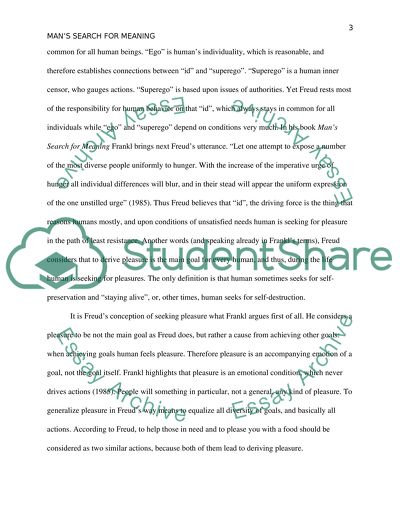Cite this document
(“Mans Search for Meaning Essay Example | Topics and Well Written Essays - 1250 words”, n.d.)
Retrieved from https://studentshare.org/philosophy/1672976-mans-search-for-meaning
Retrieved from https://studentshare.org/philosophy/1672976-mans-search-for-meaning
(Mans Search for Meaning Essay Example | Topics and Well Written Essays - 1250 Words)
https://studentshare.org/philosophy/1672976-mans-search-for-meaning.
https://studentshare.org/philosophy/1672976-mans-search-for-meaning.
“Mans Search for Meaning Essay Example | Topics and Well Written Essays - 1250 Words”, n.d. https://studentshare.org/philosophy/1672976-mans-search-for-meaning.


